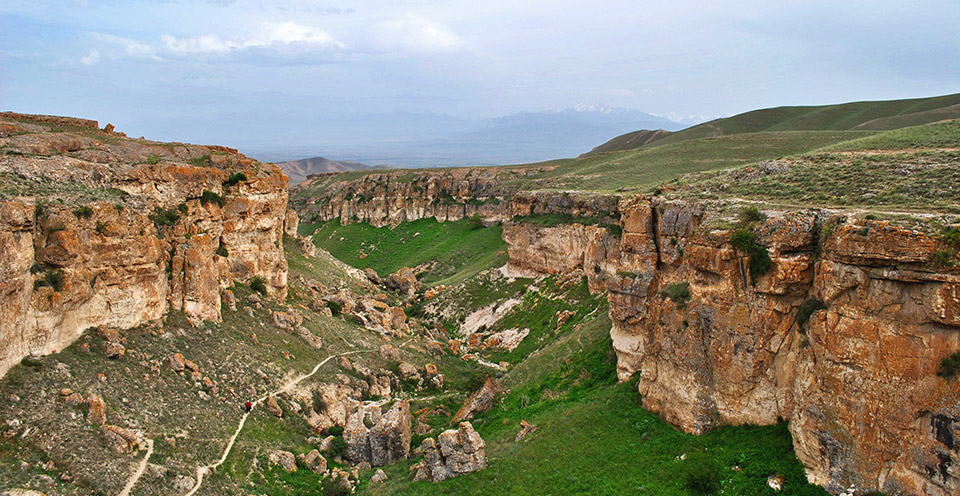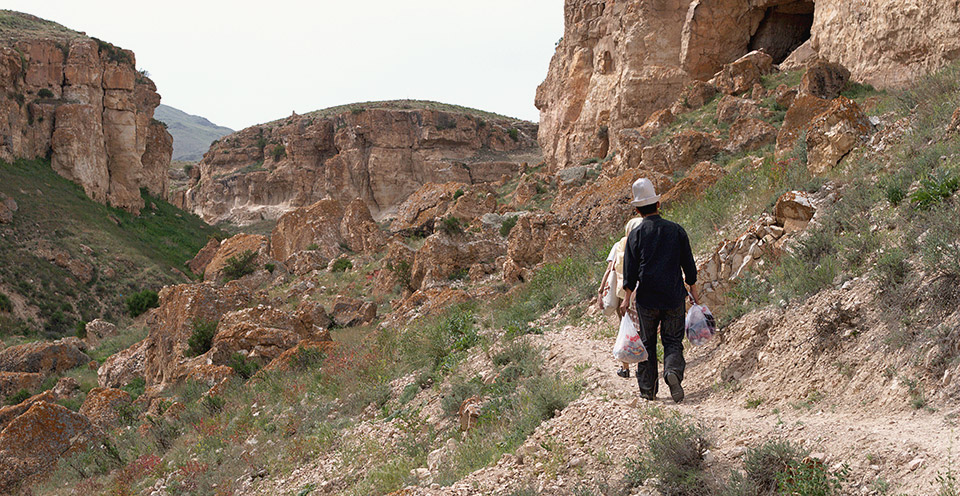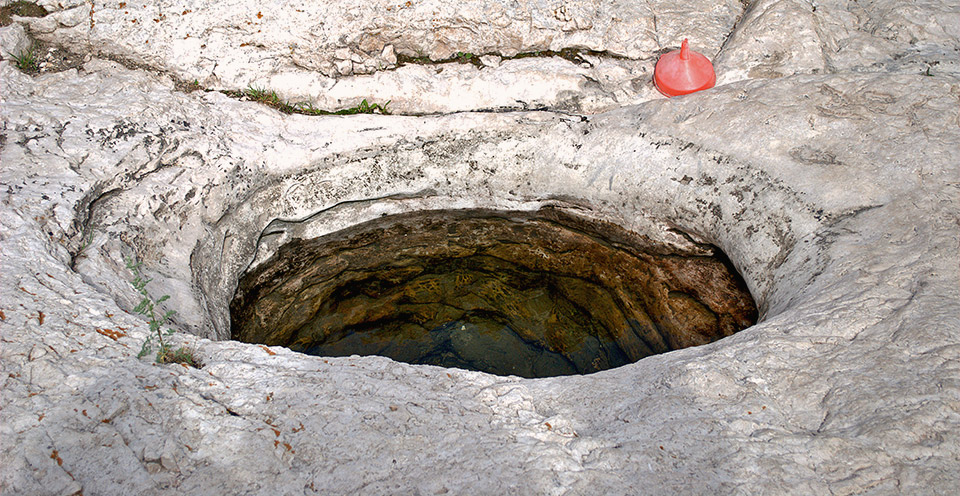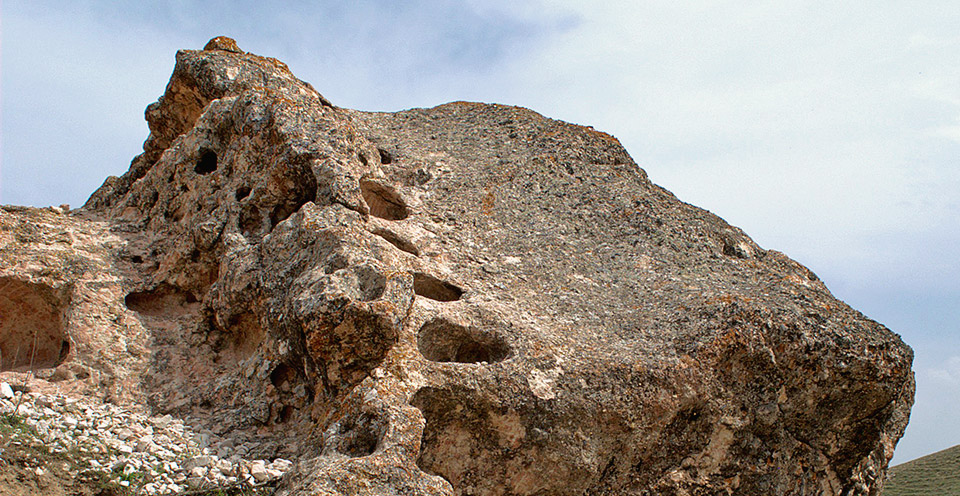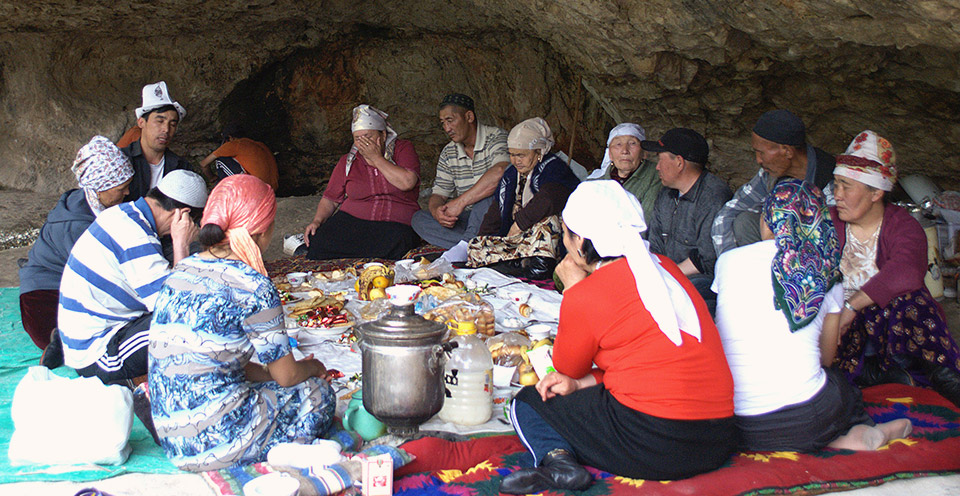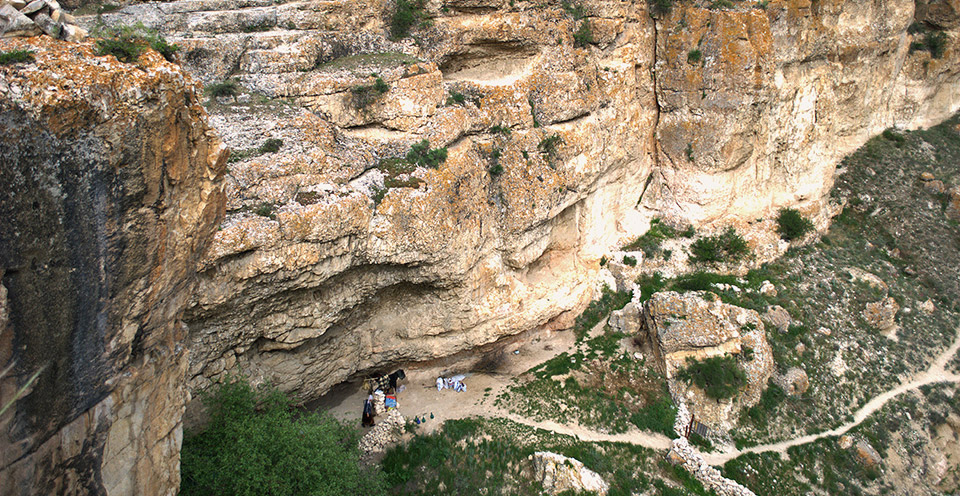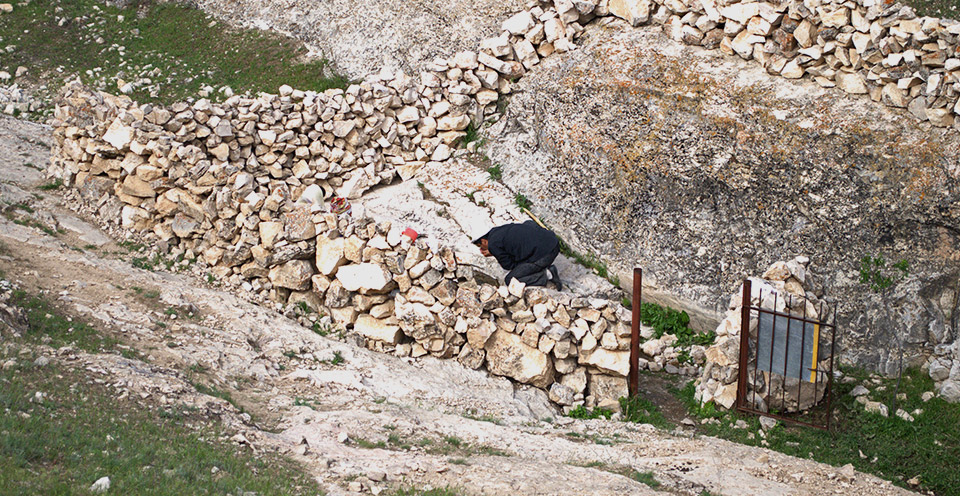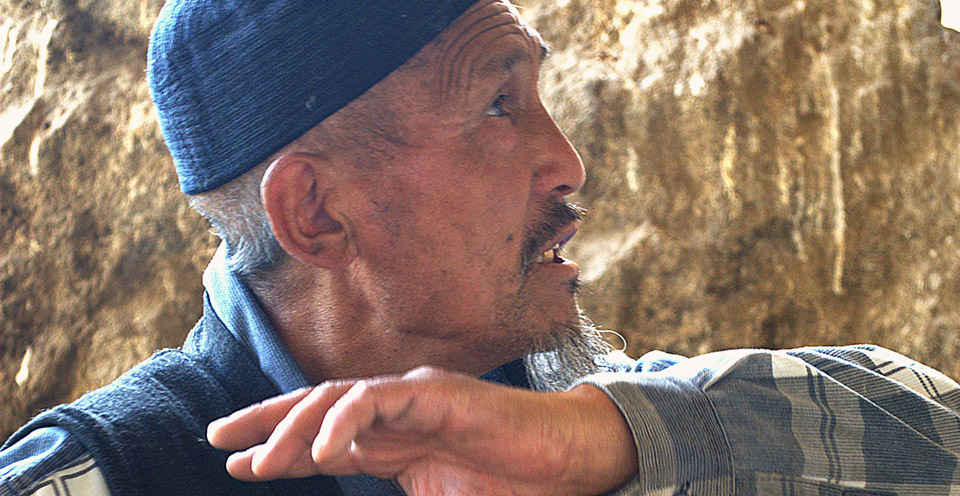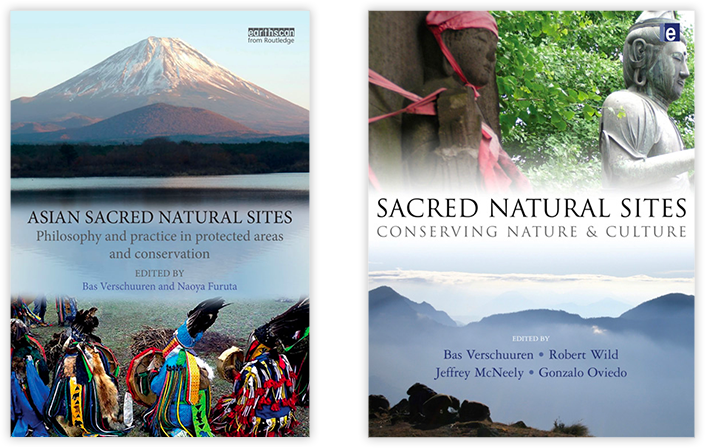Nyldy-Ata is situated in the rocky area in the Echkilüü Mountain gorge of Ozgorush village, Talas province, in the North of Kyrgyzstan. The entire gorge is connected to a complex of sacred sites. The water emerges from a cone-shape hollow (diameter ~ 1 m) in the western side of a big flat stone. Water streams through a waterfall (~ 40 m) going eastwards where it ultimately leaves the valley. Below the waterfall, on the northern side of the gorge, there is a cave in the mountain with sacred water dripping from the wall. Custodians call the site a court. There are sitting mats and cookware and three hearths suitable for big cauldrons for pilgrims and custodians. This is the sacred site Ordo – the center of the Nyldy Ata. The Nyldy Ata complex encompasses 22 sacred sites. They are all located in the Echkilüü Mountains at the foothills of Chong-Tuyuk and Kichi-Tuyuk.
Threatened.
The water level and the emerging springs in the well are decreasing, perhaps because of climate change. The gorge is large and unfenced, so shepherds herd animals, defiling the brooks. The spiritual sphere and indigenous culture are under serious pressure from various businesses, as well as from various religions. According to the Islam for example, worshipping sacred sites is a sin. Islam practitioners prohibit visits to sacred sites and have been trying to destroy such sites.
Vision
Kyrgyz people look at themselves in unity with the universe and the surrounding nature. Sky, plants and water are the building blocks of nature. For traditional practitioners it is not possible to see a person distinct from nature. When connected with nature a person can be healed by it. There are different opinions about the use of a sacred site’s healing potential. According to some visitors “it is helpful when you come to the site with will and belief”. If there is a close connection between a person and the place, then results are often positive. Thus, people who feel the connection and understand it have common visions on how to protect the sacred site. Key ideas are raising public awareness, getting legal recognition and keeping the place clean and nourished.
Action
In 2004, the Aigine Cultural Research Center started researching the ancient tradition of pilgrimage to sacred sites with financial support of The Christensen Fund. Within two and a half years, the coalition had established several results. They had defined the location of 258 sacred sites in Talas oblast of Kyrgyzstan, interviewed hundreds of sacred site palmers, witnessed rituals and investigated biological diversity at numerous sacred sites.
Policy and Law
One of the priorities of Aigine is to develop legal protection for sacred sites. According to the experts and carriers of traditional knowledge, central issues are the rules regulating behavior in the sacred sites of Kyrgyzstan, and the recognition of their cultural and ecological significance. Since the outset, Aigine has been seeking to form a balanced team representing all stakeholders to develop these laws. The majority of sacred sites in the country are unique in their beauty and the cleanliness of the environment. There is great potential to turn such zones into sites of popular rest and spiritual tourism.
Jenish Kudakeev is one of the approximately 150 guardians with whom Aigine Cultural Research Center is collaborating in Talas oblast. He belongs to the group of the guardians categorized as Shai’yks. Shai’yks are people who look after a sacred site, guide pilgrims and lead the ritual performances. As a rule, Shai’yks know the history and the special features of a sacred site. Shai’yks have the ability to practice traditional healing. Jenish Kudakeev has a particular characteristic: he is an ordinary person outside of the gorge, but when inside the gorge he is believed to possess certain extraordinary skills like the ability to heal people and to help them solve life problems and gain unique information for them.
Coalition
Aigine Cultural Research Center, which leads conservation and promotion of the Nyldy-Ata gorge, collaborates with international organizations with expertise and interest in cultural and biological diversity, religion, spirituality, folklore and education, but also with students from Talas State University and with local custodians.
Conservation tools
In 2006, the Aigine Cultural Research Center fenced several sacred sites at Nyldy-Ata complex and hung signs at the entrance with rules for appropriate behavior. The center published a Kyrgyz book called “Blessed Nyldy-Ata” which includes descriptions, history of the site and stories and experiences of visitors. In 2008, the center built a restroom at Nyldy-Ata gorge. Aigine Cultural Research Center has invited Jenish Kudakeev to various workshops, seminars and conferences about sacred site conservation. At present, he and other local people guide the visitors and explain the rules for pilgrimage at the site.
Results
The main outcome after two years of participatory research is the book Mazar Worship in Kyrgyzstan: Rituals and Practitioners in Talas. Through the work that Aigine Cultural Research Center has done to preserve, promote and conserve the Nyldy-Ata sacred sites complex, more people know about the sites and visit them in order to find solutions for their spiritual questions. This way, the history of the sites is transmitted to the next generations.
- Aitpeva G. (ed) 2009. Sacred sites of Issyk-Kul: spiritual powers, pilgrimage, and art. Aigine. Bishkek.
- Cholponai U. 2012 In Search of Sacredness: Pilgrimage Practices in Kyrgyzstan. In: Verschuuren, B., Wild., R., (Eds). Sacred Natural Sites, Sources of Biocultural Diversity, Langscape volume 2, issue 11. pp 68 – 71, Available from: https://sacrednaturalsites.org/items/terralingua-langscape-volume-2-issue-11/
- Webster J (2012) IREX, Pilgrimage and Shrines in Kyrgyzstan and Tajikistan. IREX, Washington. http://www.irex.net/sites/default/files/Webster_J%20Scholar%20Research%20Brief%202011-2012_0.pdf
- www.aigine.kg
- www.traditionalknowledge.org
- www.christensenfund.org

